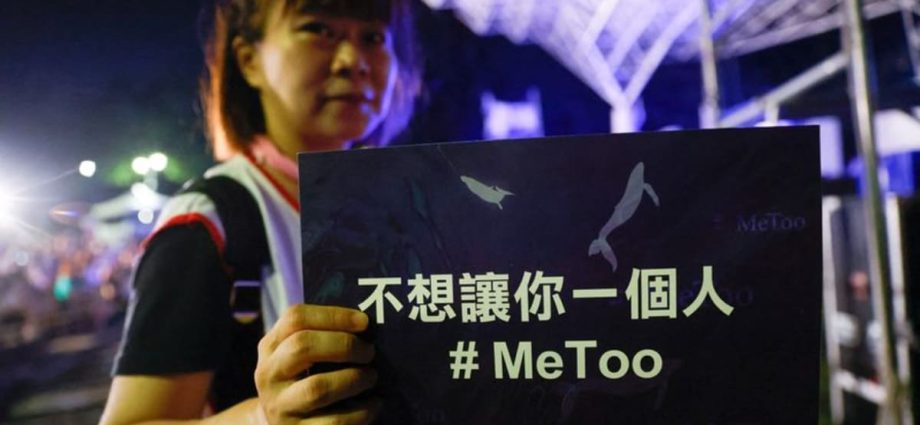
“EATING TOFU”, MALE VICTIMS
Sexual harassment is so prevalent in Taiwan that Taiwanese people have adopted the phrase “eating tofu” to describe unwelcome social interactions faced daily by women and girls – from verbal comments regarding women’s bodies to various types of unwanted physical and sexual contact.
Taiwan’s mainstream heterosexual script expects women to embody two contradictory gender roles. On the one hand, being deemed sexually attractive under the male gaze is still a core element of femininity. On the other hand, this understanding of femininity also demands women to be sexually passive.
Men are encouraged to initiate physical contact while women are expected to dodge or resist. This gendered script imposes an outdated femininity on Taiwanese women while also misrepresenting women’s refusal of unwanted sexual attention as “flirtation”.
The #MeToo movement has also shown men and boys to be victims of sexual harassment in workplaces, schools and universities. But the stigma surrounding same-sex desire works to silence male victims.
The risks associated with speaking up about one’s experiences of sexual harassment continue to be underestimated by mainstream society. Victims are subject to all kinds of questioning, with their motivations for making an allegation to the time elapsed between the assault and its reporting. In the digital era, many victims are subject to various rumours and defamation once they post their testimonies on social media.
The ways that Taiwanese society deals with sexual harassment not only serves to silence victims but also neglects the societal taboos preventing women and girls from talking about sex – be it sexual pleasure or violence. As women and girls are taught to associate sex with reputational damage and shame, many women have kept their stories silent until now – when the #MeToo movement has created a community that allows for their voices to be heard.
Taiwan still has a long way to go in terms of gender and sexual equality and the DPP’s “zero-tolerance” policy on sexual harassment is demands that the social fabric change substantially. It would be beneficial to treat the #MeToo movement as an opportunity to create space for women and girls to talk about their experiences and for collective work to be done on how society can better support and rehabilitate victims.
Mei-Hua Chen is Professor in the Department of Sociology at National Sun Yat-sen University, Taiwan. This commentary first appeared on East Asia Forum.

